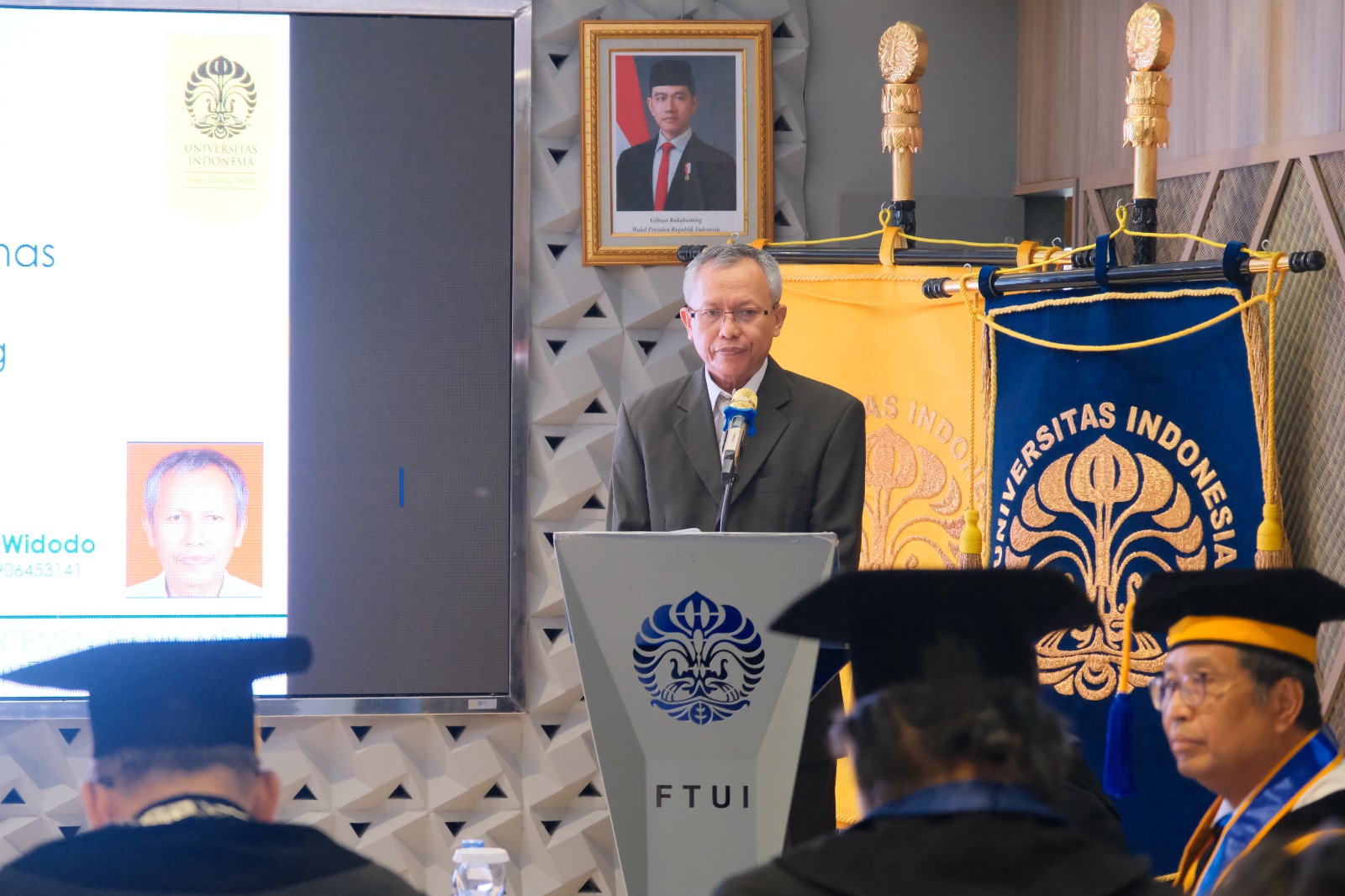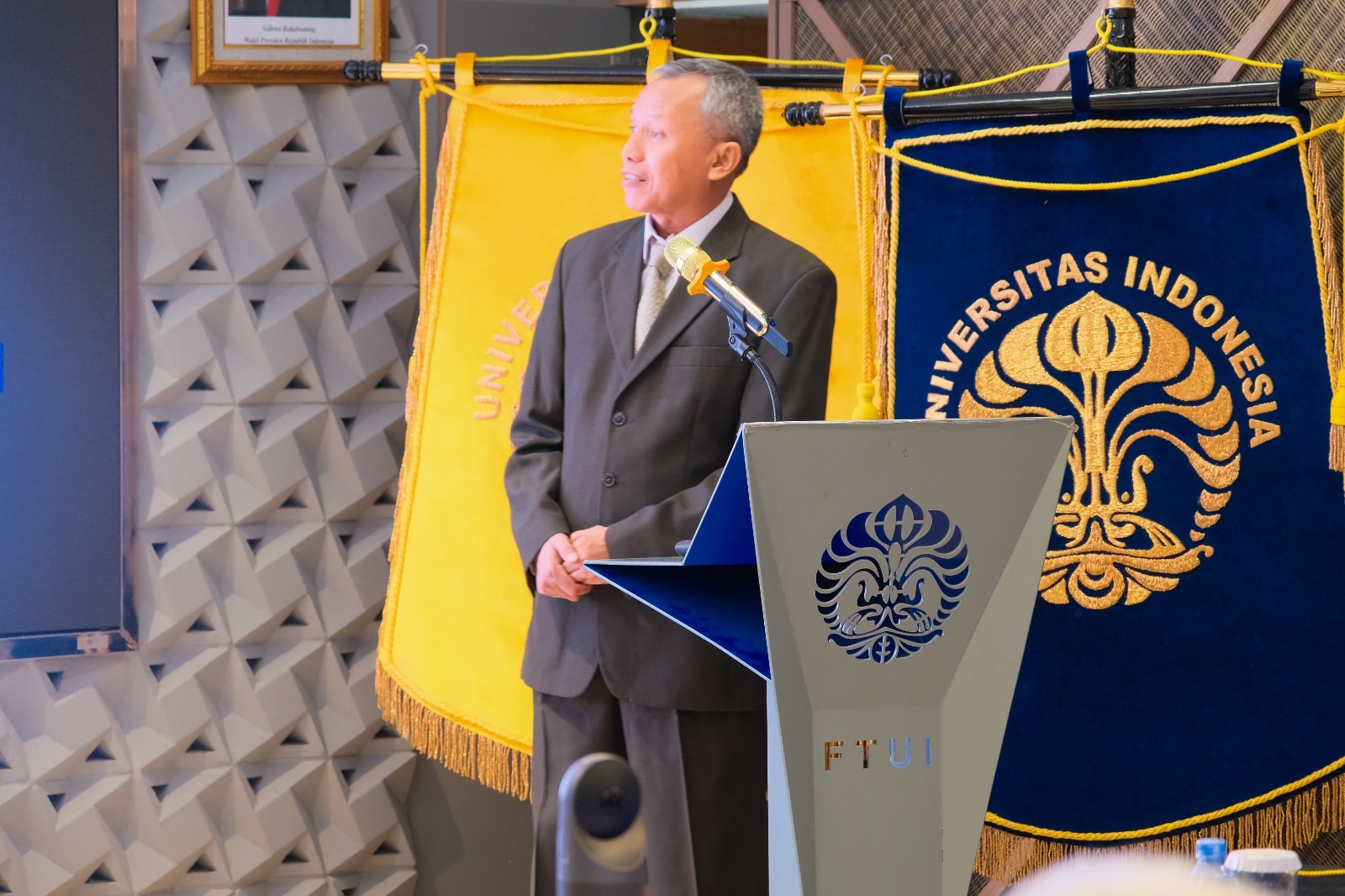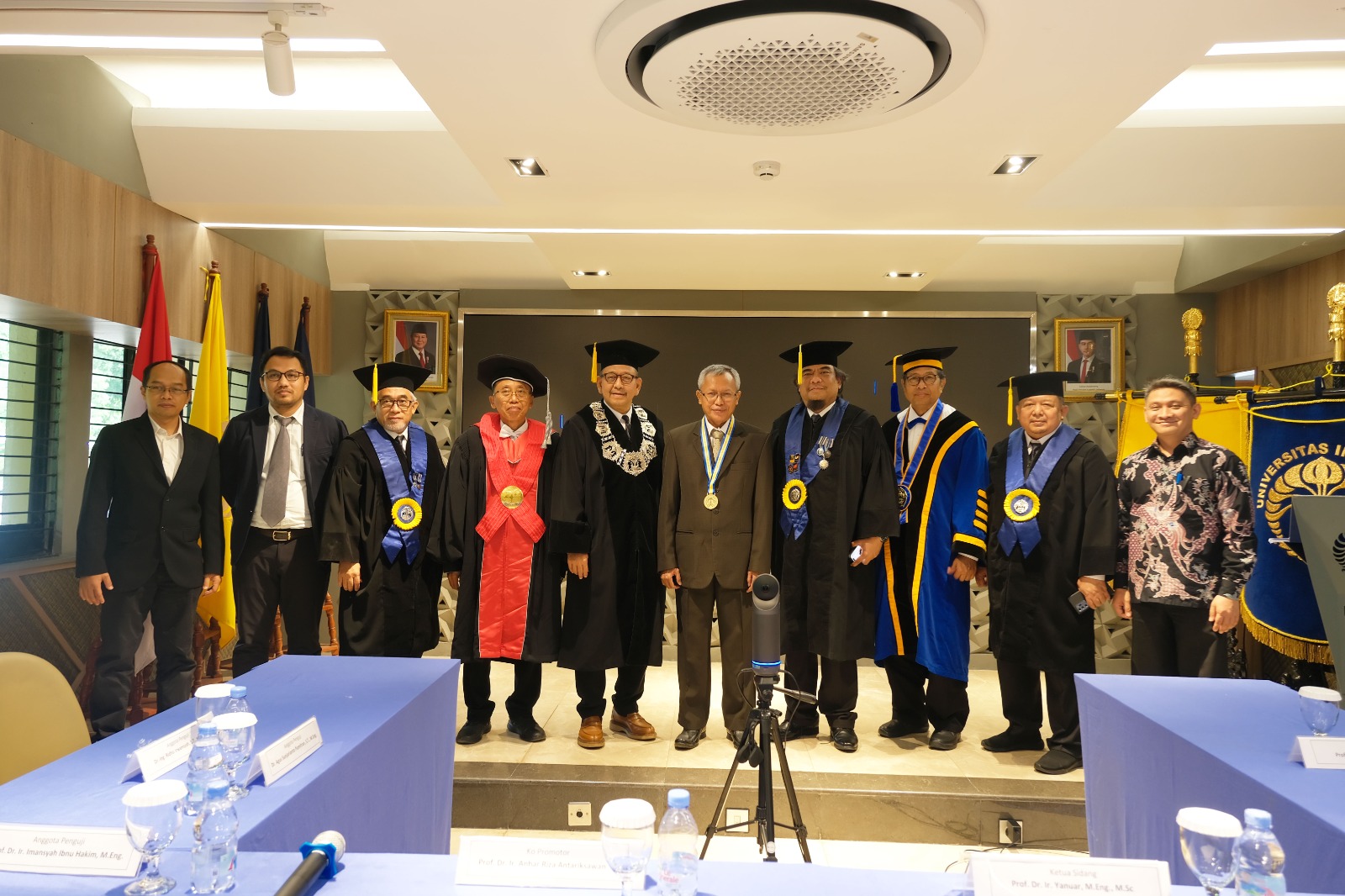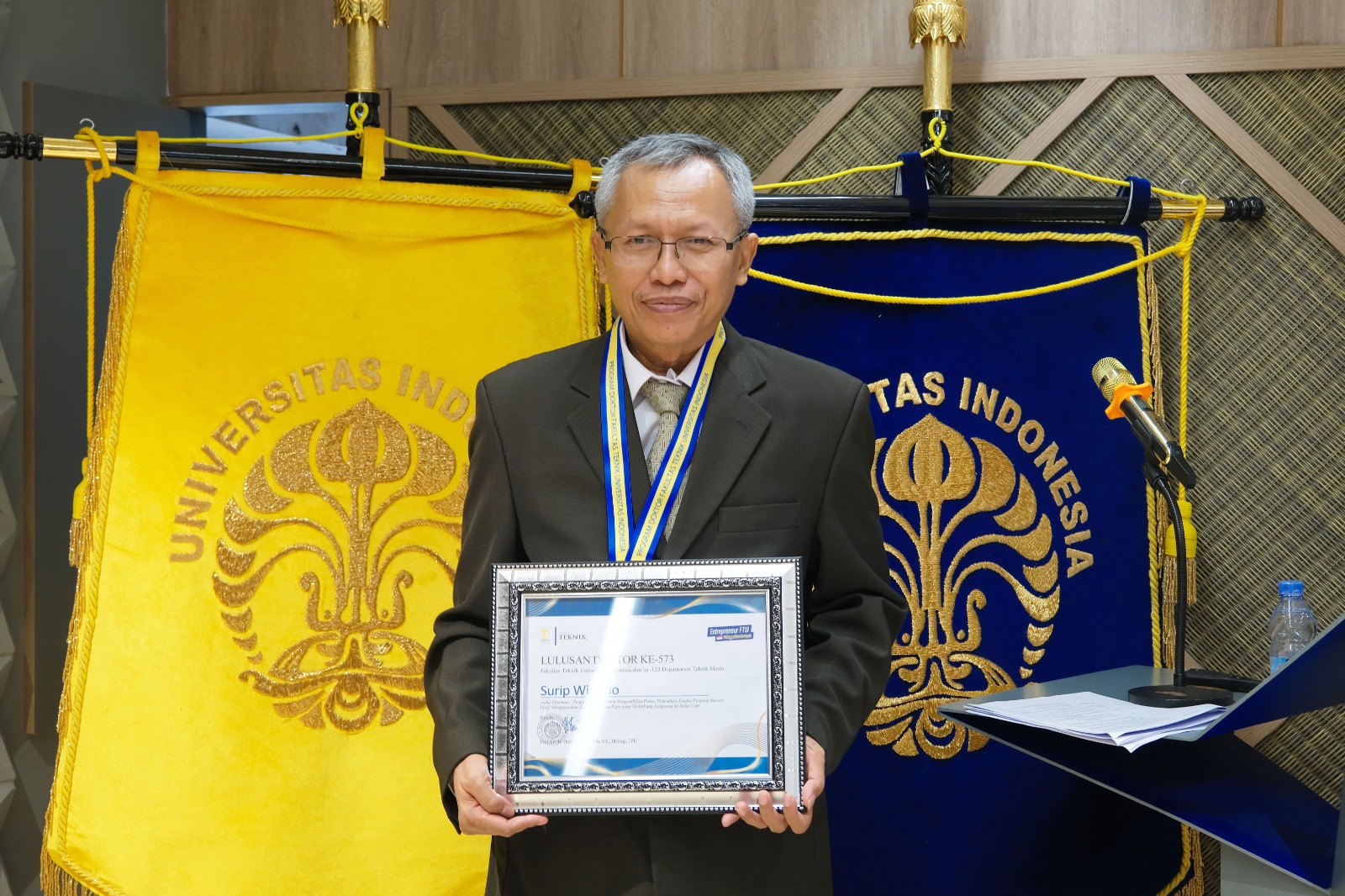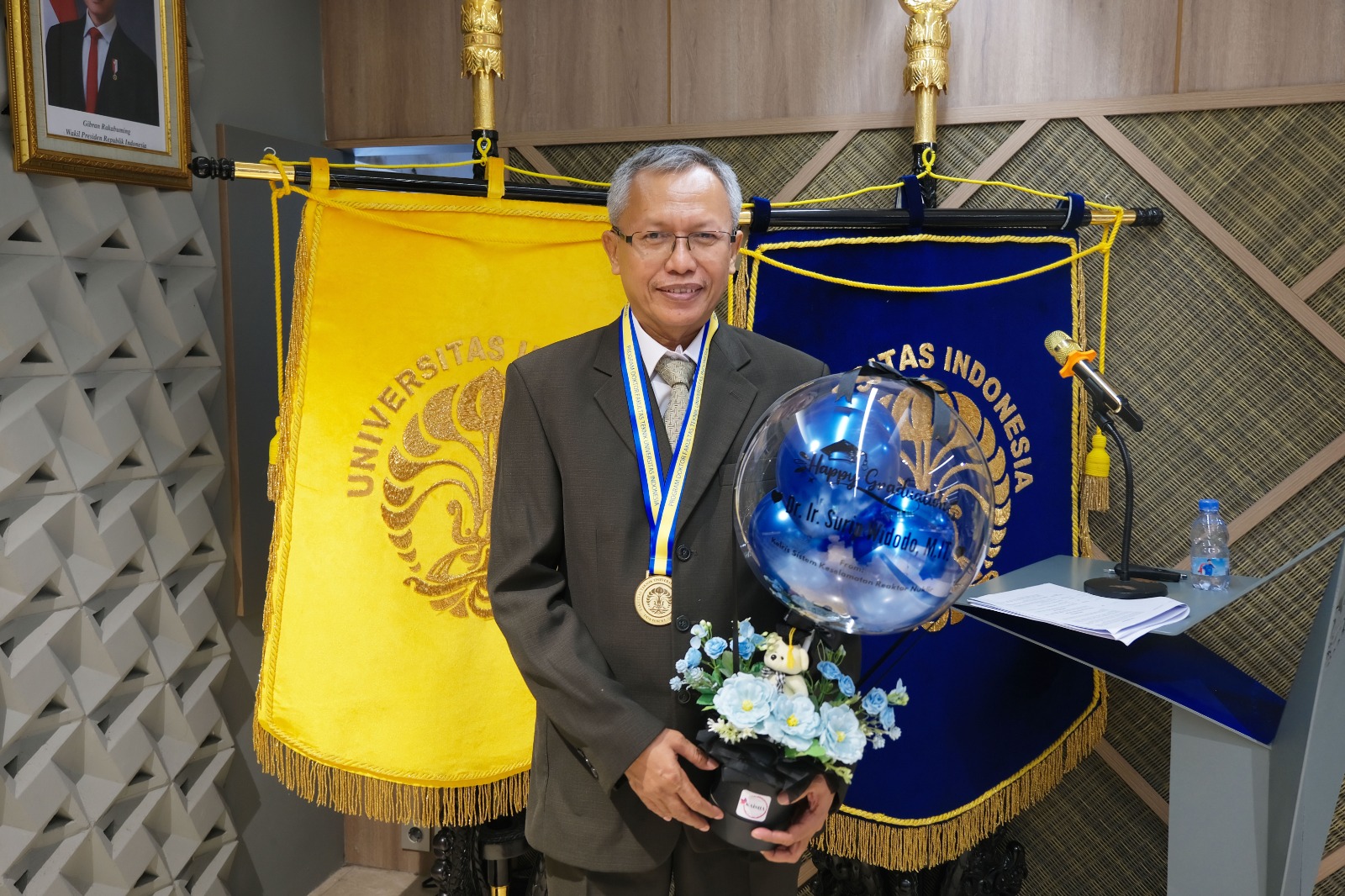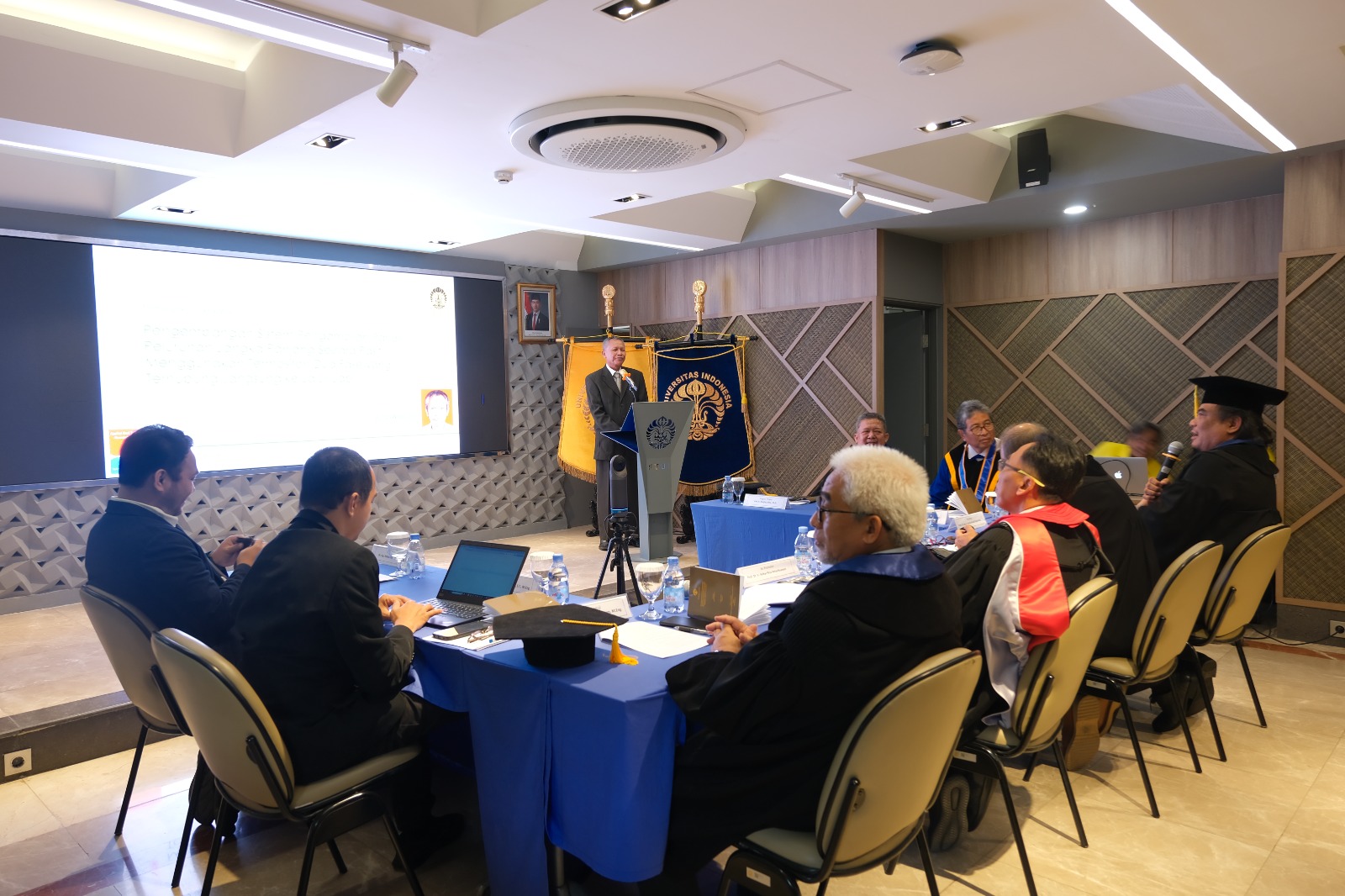Surip’s research explored using two-phase thermosyphons as an innovative solution to manage decay heat in Nuclear Power Plants (NPPs). He focused on developing a passive safety system that can operate for over 72 hours without relying on external electricity. As a result, He created and optimized the system as part of his doctoral research.
“This thermosyphon is designed to directly extract heat from the steam line and dissipate it into the environment. This research aims to study the thermal properties of the two-phase thermosyphon when condensing steam at high pressure, using research methods that include technical studies on the publicly available Light Water Reactor (LWR) NPP design, two-phase thermosyphon experiments in a steam environment, and facility simulations using the RELAP5 thermohydraulic system software,” explained Surip.
Inspired by the 2011 Fukushima Daiichi disaster, which revealed weaknesses in active safety systems that require electricity, the development of passive systems like this could prevent similar risks by reducing dependence on external electricity, extending cooling system operation time, and improving NPP operational safety.
The research methodology involved experiments and simulations. The thermosyphon was tested using the PASCONEL testing device to study its thermal characteristics, while the RELAP5 simulation was used to evaluate the thermosyphon’s performance in real-world conditions. The results of the experiments and simulations were then used to design the Passive Residual Heat Removal System (PRHR) with optimal long-term capabilities, which could be implemented in Indonesia’s first NPP.
The research results include developing a comprehensive database on the thermal resistance of two-phase thermosyphons, validating the RELAP5 model for the PRHR system design, and formulating conceptual design parameters for the passive long-term decay heat removal system. Based on the research, the initial conceptual PRHR design indicates that around 480 thermosyphons are needed to transfer long-term decay heat in a 300 MWth-class nuclear reactor.
“This research proves that the two-phase thermosyphon is a viable innovation to enhance the passive safety system of NPPs, enabling longer and safer decay heat management without external electricity. The results are expected to be the first step toward implementing this technology in Indonesia’s first NPP,” said Surip.
FTUI Dean, Prof. Dr. Ir. Heri Hermansyah, S.T., M.Eng., IPU., expressed appreciation for the research, stating, “This research represents an important breakthrough in the field of nuclear safety, as the innovation of the two-phase thermosyphon can operate passively for more than 72 hours without reliance on external electricity. This advantage significantly improves NPP safety, which is urgently needed following the Fukushima disaster. This approach also holds potential for future NPPs in Indonesia, in line with the government’s efforts to integrate nuclear energy into the new and renewable energy mix.”
The research findings were presented in an open doctoral promotion session led by Prof. Dr. Ir. Yanuar, M.Eng., M.Sc., as the Chair, with Prof. Dr.-Ing. Ir. Nandy Setiadi Djaya Putra is the supervisor, and Prof. Dr. Ir. Anhar Riza Antariksawan is the co-supervisor. The examining committee consisted of Prof. Dr. Dipl.Ing. Ir. Berkah Fajar Tamtomo Kiono, Prof. Ir. Warjito, M.Sc., Ph.D., Prof. Dr. Ir. Imansyah Ibnu Hakim, M.Eng., Dr. Agus Sunjarianto Pamitran, S.T., M.Eng., and Dr.-Ing. Ridho Irwansyah, S.T., M.T.
***
Public Communication Office
Faculty of Engineering, Universitas Indonesia

